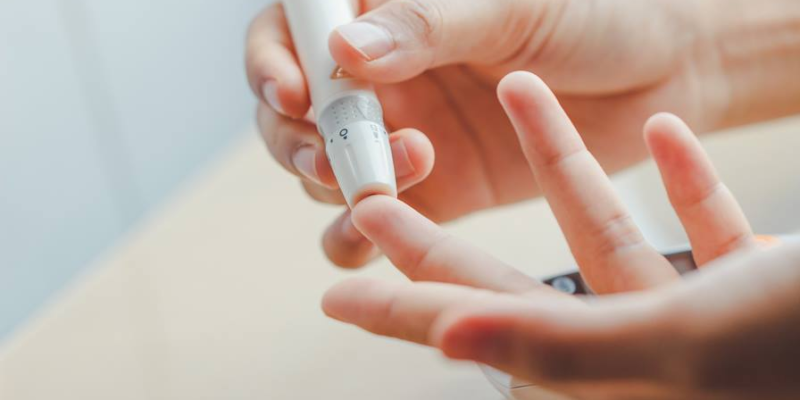Most people don’t realize that stress affects their blood glucose levels.
Diabetics are influenced by stress.
This is why doctors, recognizing this, try to make their patients aware of the damage stress can have on them in addition to providing them with their necessary diabetes medication.
Stress affects blood glucose in two ways:
- Stress prevents the body from producing enough insulin. It causes a buildup of glucose in the blood, damaging the body.
Stress causes “the fight or flight” syndrome to take place in our bodies.
The body responds by using more glucose. But without the proper amount of insulin the glucose builds up in the blood, causing a higher than normal blood reading.
Does stress cause diabetes?
Stress does not directly cause diabetes, but those who are pre-diabetic see the symptoms emerge sooner. The body stops responding normally to insulin as well as produces less insulin in the pancreas when under stress. This creates a twofold problem, making the symptoms more apparent.
Mental orphysical?
It has been shown that both mental and physical stress can cause diabetes to worsen. It causes the blood glucose levels to raise in type 2 diabetics.
- The second way stress affects diabetics is it can cause them to drink more alcohol, over eat, and neglect their personal care. This is because they concentrate on getting rid of the stress in their lives. Most doctors agree stress is something which must be watched for and brought under control.
Stress is a fact of life, and is sometimes good. It can give us an edge in business and competition.
But too much stress is not good. It can lead to physical and mental problems, besides affecting diabetics. The problem with stress is our bodies release hormones, whose sole purpose is to release energy in the form of glucose and fat, which provide fuel to the cells.
These stress hormones include adrenaline and steroid type hormones which are secreted by the
adrenal glands. There are also growth hormones made by the pituitary gland. If you are under stress, this can also lead to problems with these glands.
Diabetes diagnoses:
Many people when first diagnosed with diabetes find it a stressful situation.
Mostly because they are not expecting it, it comes as a shock. Also, they are unfamiliar with the symptoms and complications, but have heard horror stories about it. It is up to your physician to reduce your fears. He should tell you that diabetes is manageable with the right treatment. Plus with modern science we are getting closer to a cure.
Relaxation therapy:
Teaching people to relax and deal with stress seems to help type 2 diabetics. There are many ways to accomplish this.
We all experience stress from time to time. But prolonged stress can cause mental and physical problems plus it can affect your diabetes.
Although stress is a natural part of life, if you have diabetes, learning to avoid, anticipate and manage stress is important. This will help you to keep your insulin levels under control, as well as helping you live a healthy lifestyle.
There are many factors to be aware of when trying to manage your stress levels. Strategies to de-stress yourself:
The most important step you can take is to take time for yourself. Most people do not allow themselves time to relax and unwind. It is natural when you are under stress to avoid yourself. But it is essential you “take some time for yourself”.
Work, friends and community all make demands. But you will be no good to anyone if you are sick! Take time to relax, apply some relaxation techniques.
Get proper sleep. Stay away from medications that help you sleep.
The quality of your sleep will not be as good as normal. Sleep restores the body and mind to good health.
A lot of times something that was bothering you before bed doesn’t seem as bad in the morning. Also avoid using alcohol to help you sleep, as you won’t get the benefits of the nights rest.
Only do the things you need to do.
Don’t overload yourself with useless activities that cause stress. Allow yourself lots of time to accomplish each task, and most important learn how “to say no” to things that will bring you stress, or are not necessary for your wellbeing.
Take care of your diabetes. Make sure you keep an eye on your readings, this will reduce stress. And you will be able to keep your physician properly informed.
Just as important as saying no, is learning to “say yes” to offers of help from others. We all want to be self -sufficient, but it will lower your stress considerably by having a good support system.
There are countless ways of relieving stress; it is a whole topic in itself.
Being a person with diabetes it is essential you learn some of them and apply them to your life.
Your body will thank you.













Comments